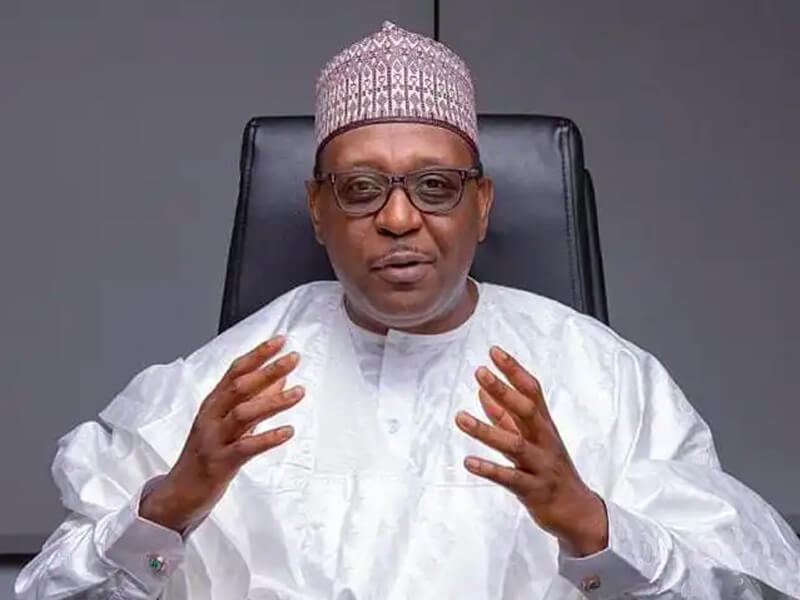
The federal government said it has approved the recruitment and deployment of over 20,000 health workers in public health facilities across the country.
It also said that under this effort of the Sector-wide Approach (SWAP) reform initiative in the health sector 69,000 frontline health workers have been retrained across all the 36 states of the federation.
In addition, the Nurses and Midwifery Council of Nigeria (NMCN) said that over 115,000 nurses are presently being produced annually in Nigeria.
Coordinating Minister of Health and Social Welfare Prof Ali Mohammad Pate on Thursday disclosed this while speaking at the Roll-out of the Nigeria’s Strategic Directions for Nursing and Midwifery (NSDNM) in the country.
The 5-year action plan which was unveiled Thursday in Abuja, contains a roadmap to strengthen healthcare delivery and transform nursing profession nationwide
Pate said that nurses are at the core of persons care in hospital services in the country.
He said the federal government has “made deliberate investments on the health workforce, particularly in nursing and midwifery and other frontline workers, recognizing the significant supply demand gap in our Health Labor Market.”
“This administration, under His Excellency President Bola Tinubu has consistently demonstrated unwavering commitment to uplifting the nursing and midwifery profession.
“Ministry of Health and Social Welfare in the past year and have championed strategic expansion of nursing and midwifery education,” he said.
While explaining the policy objective, Pate said that it will “strengthen education, create dignified and rewarding career pathways through jobs, expand leadership opportunities and retain top talent within our health system to deliver services’.
“It is a practical guide that will shape reforms, investments and innovations in nursing and midwifery over the next five years, while also positioning Nigeria as a contributor to global health system resilience through skilled, motivated and equitably distributed workforce.
Pate said the president has granted waivers for the recruitment and deployment of over 20,000 health workers in federal facilities
He further disclosed that 60 percent of them are to come from the nursing and midwifery profession because they’re the front line.
“Already under this effort of the Sector-wide Approach in the health care system (SWAP) has led to the retraining of 69,000 frontline health workers across all the 36 states of the federation and with nurses and members benefiting directly from the enhanced capacity development across the states and local government areas in the last 20 months.
“I believe, and my director of human resources here in the Federal Ministry has been graciously given permission by His Excellency, Mr. President, to accelerate the waivers to enable recruitment of health workers in federal government health facilities, he said.
Special guest at the event and the Chief of Staff to the President, Rt. Hon. Femi Gbajabiamila, said the policy initiative provides a bold, comprehensive and forward-looking roadmap that will guide, strengthen institutions and ultimately enhance the contributions of nurses and midwives to our national development.
“As we move forward from this summit, I urge all stakeholders government agencies, professional bodies, educational institutions and our vital development partners to embrace the spirit of collaboration and work tirelessly towards full and faithful implementation of this strategic document,” he said.
Earlier in her speech, the Permanent Secretary of the Federal Ministry Health and Social Welfare, Daju Kachallom, said the policy roadmap is anchored on four pillars, including education, which entails reforming and scaling up nursing and midwifery education to meet both local and global demands.
She also said that the policy seeks to ensure quality and relevance to job creation, developing sustainable strategies for employment retention and fair compensation of the health workforce leadership, empowering nurses and midwives to assume leadership in roles in policy, planning and management at all levels and for service delivery.
The Registrar of Nurses and Midwifery Council of Nigeria, Dr. Ndagi Alhassan, said the yearly production rate of nurses in the country which previously stood at 23,000 is now over 115, 000 per annum.
However, Alhassan said that a major challenge presently is engaging these trained nurses, adding that it is becoming difficult for government to provide employment for them.
He also disclosed that the Council has introduced an initiative to help solve the problem as well address the problem of health worker migration.
According to him, government is now patterning with communities to select and train nurses who will undertake to serve in various communities where they come from.
One of the highlights of the ceremony was awards of Ambassadors of the Nursing/Midwifery profession to Pate, Senator Banigo and Rt. Hon. Femi Gbajabiamila.
Onyebuchi Ezigbo



